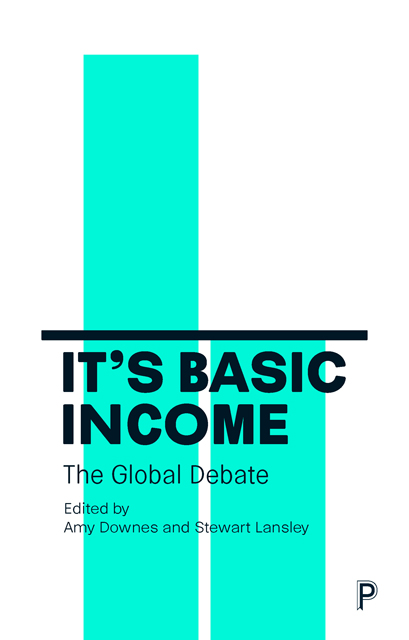16 - How I learnt to stop worrying and love basic income
Published online by Cambridge University Press: 11 April 2023
Summary
‘In this age of astonishing political volatility, politicians shouldn’t be afraid to embrace radical ideas. That’s why I came out for basic income – and why I think it must be part of the debate going forward.’
In early 2016, using the freedom from collective responsibility that I had recently attained by leaving the Labour frontbench, I wrote an article for the New Statesman entitled: ‘How I learnt to stop worrying and love basic income’.
For some time I had maintained a closet interest in UBI, and felt the time was now right to talk openly about why it appealed. But writing this piece was not without reputational risk. I was acutely conscious it would be written up as ‘mainstream MP backs non-mainstream idea’.
Yet the reaction was extremely positive. I attribute this to two principal things: first, concerns about how the welfare state is operating at present in the UK; and second, concerns about how the welfare state might survive the transition into the future, especially in a world of automation and digital self-employment.
But as well as both of these I wanted to address the challenges faced by politicians on the left when it comes to rapid economic change and the impact that can have.
My outlook on politics is fundamentally shaped by my experience of growing up in the North East of England in the 1980s. The closure of entire industries, like coal and shipbuilding, had dramatic and fundamental consequences for the areas built around them. The same is true of the areas that have lost elements of the steel industry today. I still believe the Thatcher government’s abject response to deindustrialisation lies at the heart of many of the problems the UK faces, such as low skills, worklessness and poor public health. The UK spent a fraction of what other countries, such as Sweden, spent on education and retraining as traditional industries declined, and we have suffered the consequences.
The left no longer has a convincing answer to how it should respond to seismic economic change. The traditional response, calling for the nationalisation of failing industries, doesn’t solve the problem. Running an industry at a loss because it is subsidised by the taxpayer is not a long-term answer.
- Type
- Chapter
- Information
- It's Basic IncomeThe Global Debate, pp. 87 - 90Publisher: Bristol University PressPrint publication year: 2018



